Refugees and asylum seekers in Australia given indefinite detention
The treatment of refugees and asylum seekers by Australia has been described as cruel and inhuman by the United Nations. In 2014 Australia launched a campaign to deter refugees from coming to Australia. Its slogan read ”No way. They will not make Australia home”.
When international tennis star Novak Djokovic was denied entry to Australia and detained at the Park Hotel in Melbourne, a migrant detention centre, there was a silver lining for the refugees held alongside him; men who came to Australia seeking asylum, seeking refuge, many of whom were just boys at the time.
But now, almost a decade later, they have languished in various detention centers, some of them for as long as nine years. The Australian practice of sending refugees who arrive by boat to offshore detention centers which have been compared to Guantanamo Bay.
Australia wants all the power but none of the responsibility, forcibly transferring refugees to nearby Papa New Guinea or the island nation of Nauru, keeping them in horrific conditions.
People are beginning to question why Australia is treating these men like criminals and not meeting its obligations under international law or abiding by any International Refugee Conventions.
International tennis star Novak Djokovic was slated to compete in the Australian Open tournament. Non citizens must be vaccinated in order to enter Australia. However, Djokovic was given an exemption for mandatory COVID-19 vaccination.
Once the Serbian tennis player arrived on Australian soil on January 5, he was denied entry and his visa revoked. The Australian government suddenly changed its mind claiming the Djokovic didn't meet the country's entry requirements, and that his presence would encourage 'anti Vax' sentiment in the country. Djokovic was detained and held at the Park Hotel in Melbourne.
One might wonder what's so bad about being in the Park Hotel? But this isn't any ordinary establishment. This particular Park Hotel is used by the Australian government as a migrant detention centre where refugees and asylum seekers are sent and ‘temporarily’ held, for years in some cases.
People began showing up outside the hotel in solidarity and support of Djokovic, seemingly unaware of what else was going on inside the building.
His lawyers went to court to dispute the Australian government's decision to revoke his visa and there was a public hearing, a live stream of which attracted around 80,000 viewers on YouTube.
While Djokovic was allowed to leave the Park Hotel after just a few days, the refugees were not. many of these men came to Australia as teenagers, seeking asylum, fleeing war, and are now men having been locked up in detention since arrival.
Currently, there are around 33 men who are held at the facility. They were transferred to the Park Hotel from other offshore detention centers in places like Nauru and Papua New Guinea for medical treatment.
However, in late 2021, the place essentially became an incubator and was nicknamed 'outbreak hotel' because of the unsanitary conditions which caused COVID-19 to spread rapidly. At least half the refugees in the hotel caught the virus. The conditions in Melbourne's Park Hotel are quite horrendous.
One of the refugees 'housed' at the Park Hotel posted a picture of the food that the refugees have been given. It was covered in mould and full of maggots.
The refugees are not allowed to leave the hotel. They cannot even open their windows for fresh air since they have been sealed shut. But at least they have been granted air conditioning.
Transferred from various offshore detention centers, many of these refugees have been in detention and shuffled around facilities for years. For instance, an Iraqi asylum seeker Salah Mustafa has spent eight years in detention.
Another refugee, Thanush Selverasa, from Sri Lanka was first detained in 2013 on Manus Island and Papua New Guinea for six years and then in a prison hotel in Melbourne for another year. He was finally released in January 2021.
Thanush Selvarasa is at present a human rights activist for people seeking asylum and an ASRC, Asylum Seeker Resource Centre, human rights intern.
Could you maybe tell us how you came to Australia and how you came to be in detention?
I came to Australia in 2013 seeking asylum and safety. Unfortunately, I reached Australia in July, they make the policy that if anyone come to Australia, after 9 July they transfer to offshore processing centre, they will never ever settle in Australia.
This is a policy they've made but I wouldn't know about that. My friends also know about that policy. Unfortunately we have asked a transfer to the offshore processing centre and it's very difficult I couldn't imagine how was this being in offshore processing centre.
Thanush Selverasa, Refugee detained for seven years in Australia
You said you were first in offshore detention? Where was this facility and when you were transferred by Medevac to Australia, where did they send you?
Yeah, I was six and a half years in offshore detention centre then I transferred to Australia under the Medevac law. Then I spent my EA here one and a half years.
So totally, I guess spent my lifetime in detention for more recent eight years.
Thanush Selverasa, Refugee detained for seven years in Australia
Could tell us about the conditions and how you were treated in detention, how was life inside this kind of prison, not even knowing when you might be released?
They are sent to a processing centre If anyone come to Australia by boat then unfortunately me and my friend (were sent to a processing centre). These look like islands, like Prison Island. Everything out of our control, we can't do anything, lack of medical facilities, and day by day deny our freedom in there and our day by day we were destroyed mentally and physically.
It's very difficult to explain the feeling ... indefinite detention and that's why 13 of my friends were lost their life on that island because of mental health issue and medical issue.
That's why after that, we lost 30 Innocent people. And then finally they in Australia they passed the law if anyone affected with this sick they can transfer to Australia under the Medevac law that's a law they passed then.
Under that law, some of my friends were moved to Australia from offshore processing centers.
Thanush Selverasa, Refugee detained for seven years in Australia
How did that impact your mental and physical health?
... quite a pain but we were separate from our family long term years but it's a call by number day by day and we waiting for the phone call to talk our family for one weeks.
One time the internet also is also proving some is very difficult. This is a different type of punishment to us... I can't explain the feeling how much difficult to being in the different regions.
This is a punishment like without bleeding cut our neck is I don't know how to tell explain that feeling really very hard...
Thanush Selverasa, Refugee detained for seven years in Australia
So they put you in this hotel-cum-detention-centre where the windows are sealed shut, you can't open them for fresh air, and you're not allowed to go outside to get any sunlight.
Yes, this is a condition I was in there but it's a very difficult. We can't open the window, we can't get the fresh air, and we can’t get the sunlight.
We said, I don't know brother, this is a pain we have some of my friends still having that pain.
Now people understand very well how difficult to being in quarantine for 14 days or seven days.
Thanush Selverasa, Refugee detained for seven years in Australia
And how did you get out of detention Can you maybe tell us about the moment when you found out that you're finally free? How did you feel?
Really I I couldn't realize that I'm going to be free but before then one big group of people were released from detention before then, mean they will, they will they were released but that is a day we were angry. And there is a long term here after eight years later I'm going to pass the message to my mother.
just waiting for the one message to my mother after eight years. Hello my mom I am free. I have been waiting for eight years to tell that message.
Not only me and my other friend as well. It's a long term here but when I (spoke with) my mom she was speechless. I couldn’t imagine how was she happy at that moment. It's very incredible.
And that day they called my name with my friends (for release), It's a, it's a very, very wonderful moment. That time is when I'm going to release from detention, some of my friends waving their hand on the street welcoming us is just such a wonderful moment because still I want that memory never ever gone from my mind.
Thanush Selverasa, Refugee detained for seven years in Australia
What was it like after detention? Could you tell us what kind of visa or permit you’ve been given and what are the challenges or the difficulties that you now face? Are you able to work and live normally?
Because the temporary visa, this kind of visa that we have (gives us) the right to work, but we don't have the right to study or fly overseas and this is a very big challenge because we have to renew the visa six months one time, which will be going to add pain for the any job or company they will expect the long term visa holder, they don't want to anyone to short term period visa holder to work their hair like employed [sic].
But this is a situation we have facing day by day, and in my experience, last time I trying to get a house for rent under my name, but two or three three landowner they reject my application because I am on a temporary visa.
It's a very difficult especially as we were in detention for the last eight years and don't have any economical background, but at the same time we have been trying to rebuild our life into the community.
It's very, very, difficult to rebuild our life without any economic support because we can't get credit from banks because we don't have the permanent residence or we don't have the visa.
Thanush Selverasa, Refugee detained for seven years in Australia
How were you treated by the staff, the people working at the detention centres?
Some of them treated like poorly, some of them treat them nicely. But first time as I talked to some of officers in there I asked some help and they beat us, but after that long term in detention, but I don't like to talk too much to the officers, having survived in there, that working like guards but I don't I don't like to talk to them because I ... hate them, ... they don't understand our feelings.
They look like they see us like we have done something in previously or something like that.
But they don't know about our story, why we came to Australia, why we have been in detention ... for no reason; but then look like as different view but they don't know but this I did not talk much to the guards there.
Thanush Selverasa, Refugee detained for seven years in Australia
So they looked at you like you were criminals or something?
In my experience, when I was in detention centre, I got an appointment from doctor to go for the medical treatment. They took me to the hospital with guards and with handcuffs. But in front of (the public) they locked me with a handcuff to take to the hospital.
Anyone see me they think oh this guy have done something. But at that moment tears fall from my eyes without my permission but I after that I did not; I refused to go to hospital to get treatment in handcuffs.
Thanush Selverasa, Refugee detained for seven years in Australia
What is your message to Australians and the rest of the world? How can people help?
This is my message. Every innocent human has the right to be free and enjoy their life. No one should have their life put in indefinite detention for no reason.
My friends have been in indefinite detention for more recent. They must be free into the community, this must end; but this is the way people need to push the MP or send the letter and make the signatures in the post the government to release my friends for they have been in long term in detention for no real reason.
Thanush Selverasa, Refugee detained for seven years in Australia
Australia has been heavily criticized both at home and abroad because of how it treats refugees and asylum seekers. In 2014, the Tony Abbott led government launched a campaign aimed at deterring refugees from coming to Australia. Its slogan read: "No way. They will not make Australia home".
As the poster says people who travel to Australia by boat without a visa will not end up in Australia. They will be sent for processing in Nauru or Papa New Guinea.
Australia's policy is that anyone who comes by boat will be sent to these offshore detention centers. If you enter Australia without a visa, you will be detained for an indefinite period of time.
Australia basically operates offshore detention centers in these countries such as the infamous migrant detention centre in Nauru, a camp that has been compared to Guantanamo Bay.
Look in an atlas and see how far away it is from Australia, over four thousand kilometers, literally in the middle of nowhere in the Pacific Ocean.
Australia basically wants to send these people off to someplace else and shirk responsibility. So instead of helping refugees and asylum seekers, who are fleeing war or persecution, it punishes them by sending them to a remote island in the middle of the ocean.
Is it any different from a penal colony?
While the number of detainees has fluctuated and diminished since 2014, and some people have been resettled in Australia or the US, there are still over 100 asylum seekers in Nauru.
People who've worked at the migrant detention centre in Nauru have described it as a prison. A school teacher said that there are guards at all times everywhere, and that children aren't referred to by their names, but with numbers. Each child has to identify themselves with three digits and three letters.
The staff who work there work on rotation. They're told that they shouldn't stay there for more than three weeks at a time because it's bad for their mental health. They have to leave the island and take breaks.
Well hold on a second if it is “bad” for the staff to stay on Nauru for more than three weeks, then how can it not be “bad” for the refugees to stay there for years and years?
What does it do to their psychological well being and their mental health?
The Australian Government said that it wanted to crack down on people smugglers, people who take money in order to smuggle refugees and asylum seekers, bring them to Australia, so we can stop them from making money and exploiting people who are seeking asylum.
However, an investigation revealed that the Australian Government was paying these smugglers to not bring migrants and refugees and asylum seekers to Australia.
So clearly the Australian Government doesn't mind the smugglers making money if it's paying them off. Now it's important, of course, to talk about Australia's obligation to help refugees under and within the framework of international law.
Australia is a signatory to the 1951 convention relating to the Status of Refugees, meaning Australia is responsible for those who seek refuge or protection from its government.
However, on numerous occasions, the United Nations has found Australia to be severely lacking in providing for those who seek its help.
A report by the UNHCR on Australia's practice of forcibly transferring refugees to Nauru or Papua New Guinea says that "the majority of asylum seekers transferred from Papa New Guinea in Nauru to Australia have still not had their claims for international protection determined after more than four years."
François Crépeau, the UN Special Rapporteur on the Human Rights of Migrants, decried the conditions on Nauru as "cruel, inhumane and degrading".
The torture convention prohibits subjecting people to cruel, inhumane or degrading treatment.
In 2015, the UN found that Australia was in violation of this "by leaving people locked up indefinitely in appalling conditions on a remote island, Australia is failing to meet this basic standard". The Australian Prime Minister at the time, Tony Abbott, responded to the report by saying that he thought Australians are "sick of being lectured to by the United Nations".
Now another myth that is commonly perpetuated is the notion that refugees must claim asylum in the first safe country that they reach. This is completely and absolutely untrue. It's false. That's not a law. That's not a requirement under international law.
The refugee convention says absolutely nothing about this and not to mention that many of the countries that refugees pass through to get to Australia are not even signatories of the Refugee Convention, or they simply lack the infrastructure to resettle refugees.
Now when it comes to these offshore detention centers, like in Nauru, it actually costs more to send refugees to Nauru or Papua New Guinea, than it does to “re-home” them in Australia.
The UNHCR report finds that Australia's National Audit Office confirms the holding of refugees and asylum seekers in offshore processing facilities costs approximately 15 times more than allowing them to live in community detention in Australia.
An article in The Guardian published on January 23 2022, says that the Nauru offshore regime will cost Australian taxpayers "nearly $220 million over the next six months"; $220 million just to hold 107 people.
The company that oversees the camp is Construct International has received $1.8 billion in the last five years alone. The article continues, "It currently costs Australian taxpayers more than $4 million a year to hold one person within a Nauru offshore regime". That means a little over $11,000 per person per day.
Australians talk about their borders and enforcing strict rules, as if they have forgotten that Australia is a colonial project of the British Empire.
They say "No way. The refugees will not make Australia home", but what about themselves and all the Europeans and Britons who came to colonize Australia and make it home?
Do the Aborigines, the original inhabitants of Australia, get a say in who they want to take in on their land or is it just the white, British and European colonizers who get a say?
Perfectly hypocritical double standards in action.
They say they don't want refugees. Well, who's creating these refugees in the first place? Didn't Australia invade Afghanistan? Is Australia not involved in American military operations which destabilize so many countries? Doesn't Australia accommodate US imperialism by hosting American bases like the one at Pine Gap, and now this new alliance known as AUKUS.
The Australians invade Afghanistan, violate Afghan sovereignty, kill Afghans, destroy their homes, occupy their land for 20 years, and then have the gall to say, oh, no, you can't come to our place.
This is what's so disgusting about this rhetoric, not just from the Australians, but from the Americans, the British and other Europeans.
They complain about refugees on their shores, and they complain about Muslims and Arabs and Afghans invading them, but they don't mind invading Afghanistan, invading Iraq, invading Syria or bombing Somalia.
Where do they think these refugees come from? Do they think people risk drowning in the Mediterranean, or off the coast of Australia for fun?
If NATO hadn't destroyed Afghanistan, Iraq, Syria and all these countries, there wouldn't be a refugee crisis.
If the British, and the other European colonial powers, hadn't invaded, enslaved and plundered Africa, Latin America, Southeast Asia and the Middle East for centuries and centuries, you wouldn't have such an imbalance in wealth and development.
Why do you think we have developed countries and developing countries? How did we get to a situation where there's such an imbalance between the two?
It's precisely because the European colonial powers stole resources and plundered the rest of the planet and enriched themselves.
These Western countries invade, kill, steal from others and then have the audacity to complain about refugees showing up from the countries they destroyed, to enjoy some of the wealth that was taken from them.
It is such a sickening, vile hypocrisy. It absolutely beggars belief that people cannot see this injustice. People one day look back on how the West created these refugees and how it treated them. and future generations will find it revolting.
Novak Djokovic is an international tennis star who has fame and media attention so he was able to get out after just a few days. But the refugees who are still locked up in the same Park Hotel as Djokovic was in are not so lucky. They need help and they need people to raise awareness on their behalf. And so to those who are still locked up in these offshore detention centers, they need people to fight for them.
They're not criminals and shouldn't be in detention indefinitely for the crime of seeking asylum, for the crime of trying to find a better life, for the crime of fleeing imperialism, war and unimaginable horrors. It is their right under international law to seek asylum, and we must never forget that.
Iran’s layered arsenal primed to deter – and decimate – US warships in Persian Gulf
Iranian commander dismisses US military buildup in West Asia as ‘theatrical gesture’
Trump ‘curious’ why Iran hasn’t ‘capitulated’ despite massive US military buildup: Witkoff
Hawkish US senator pushes Trump to ignore aides, press ahead with war against Iran
Far-right, anti-Islam protest sparks counter-protests in Manchester
Press TV's news headlines
Sudan’s mining sector suffers $7 billion loss amid ongoing civil war
Ansarullah slams Israel’s massacre in east Lebanon, urges unified Arab action


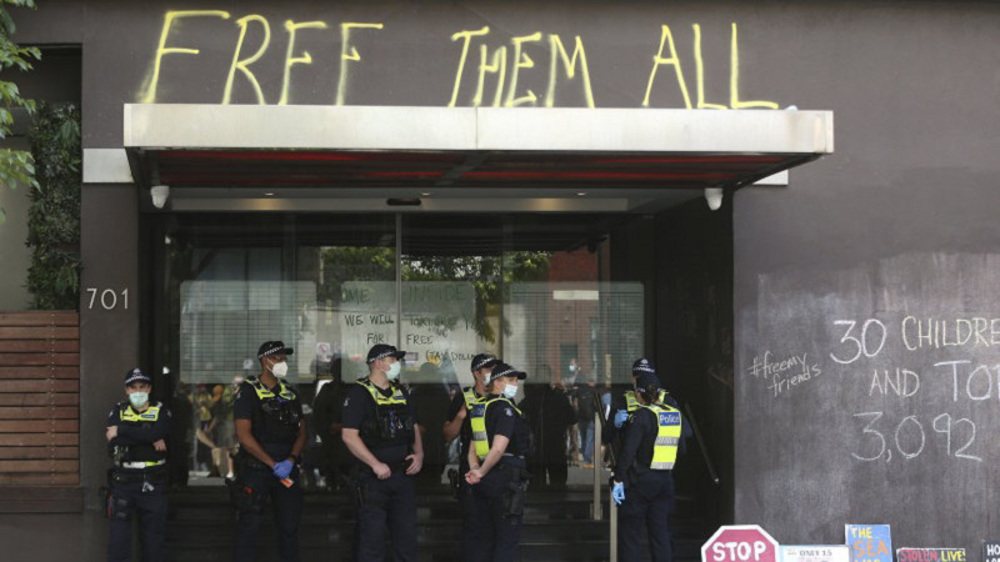
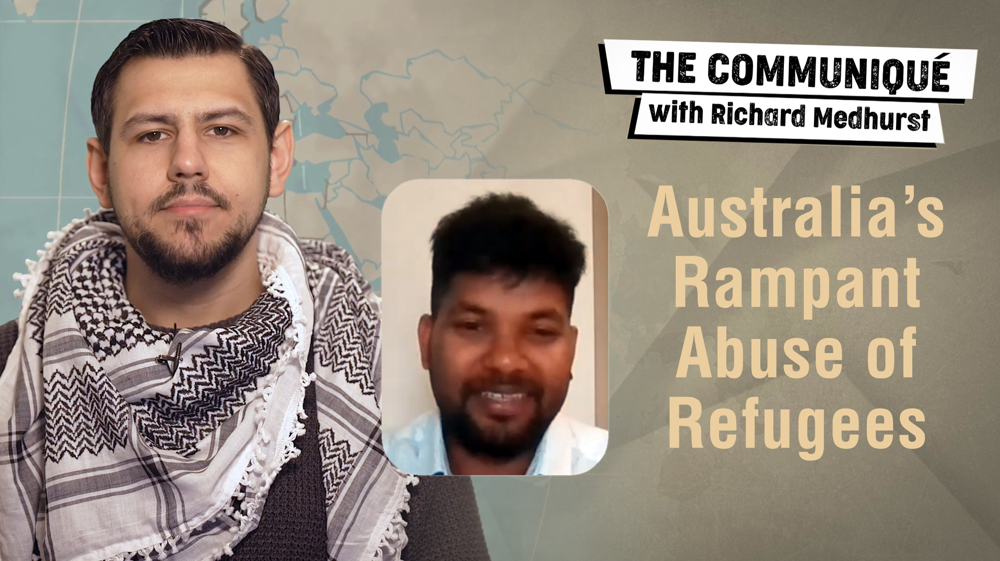
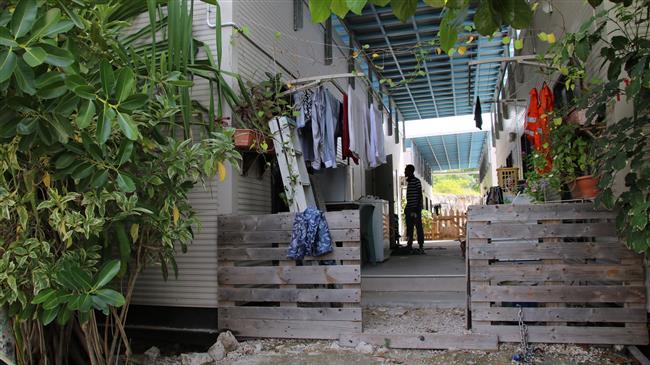

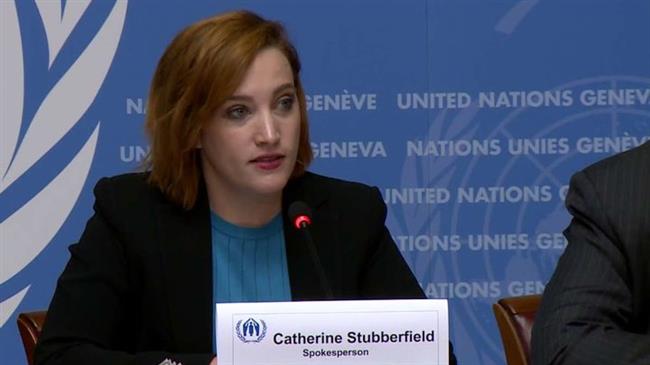
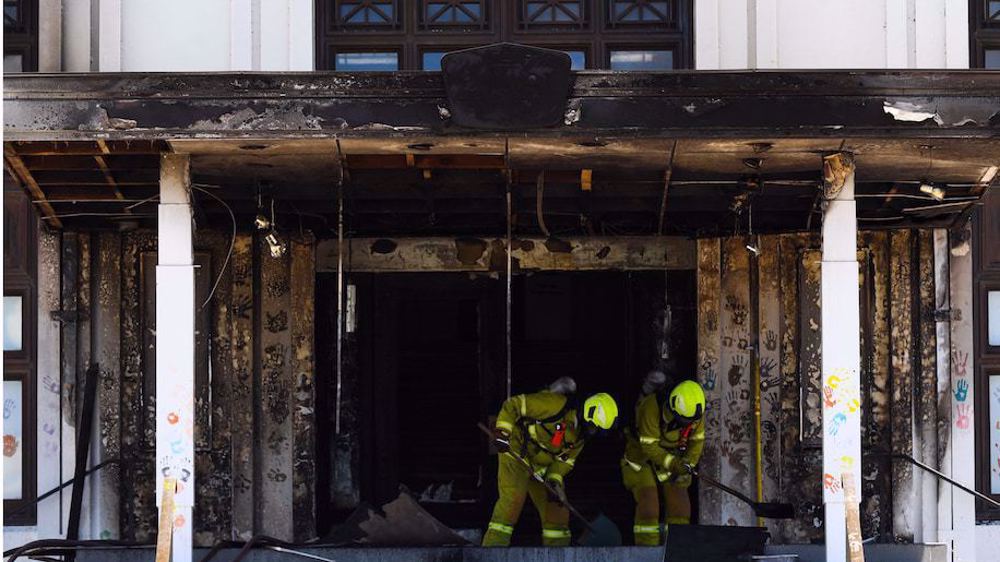
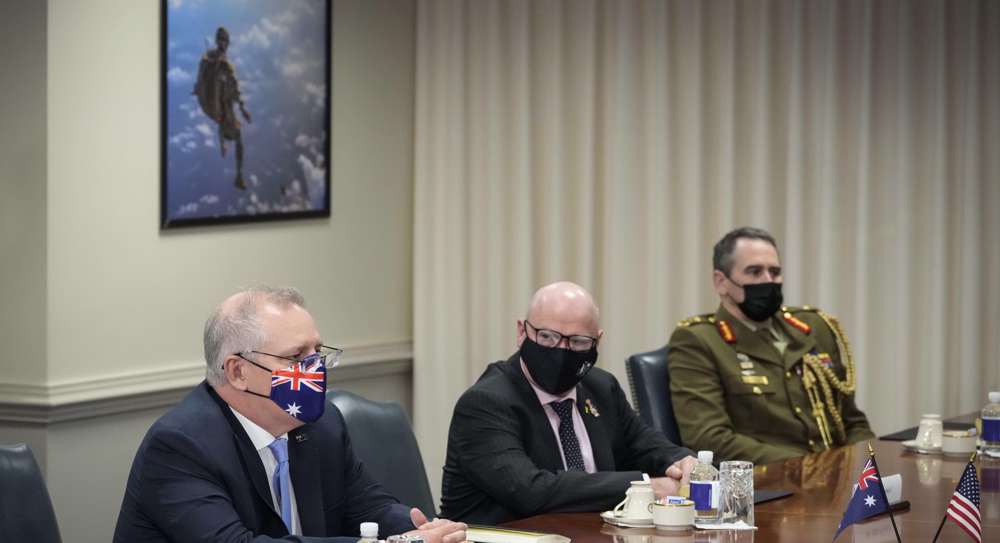
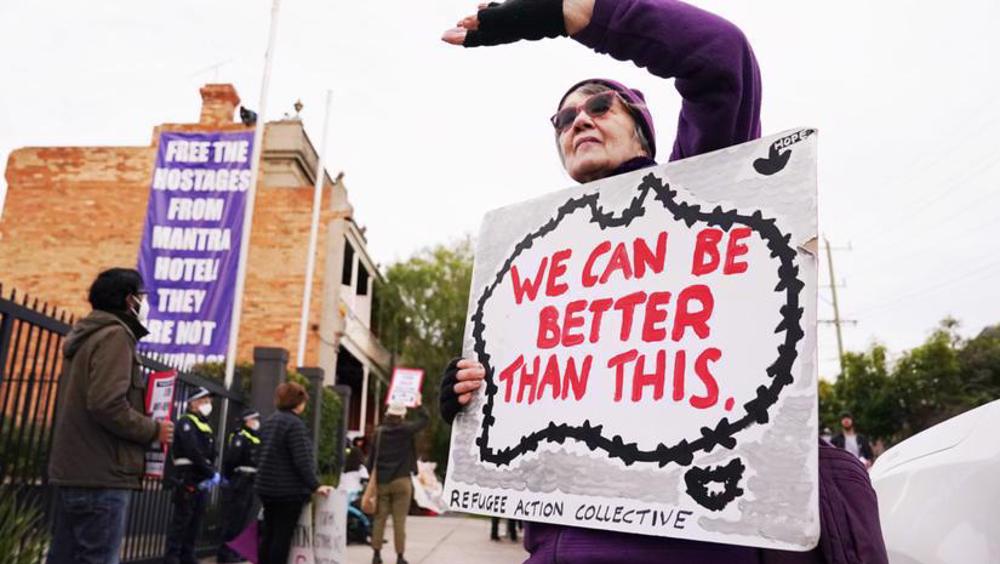
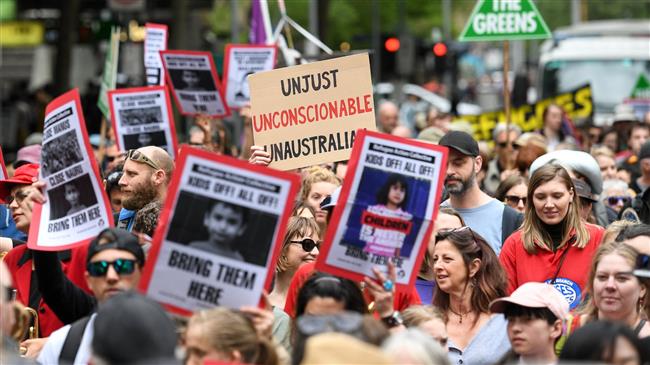

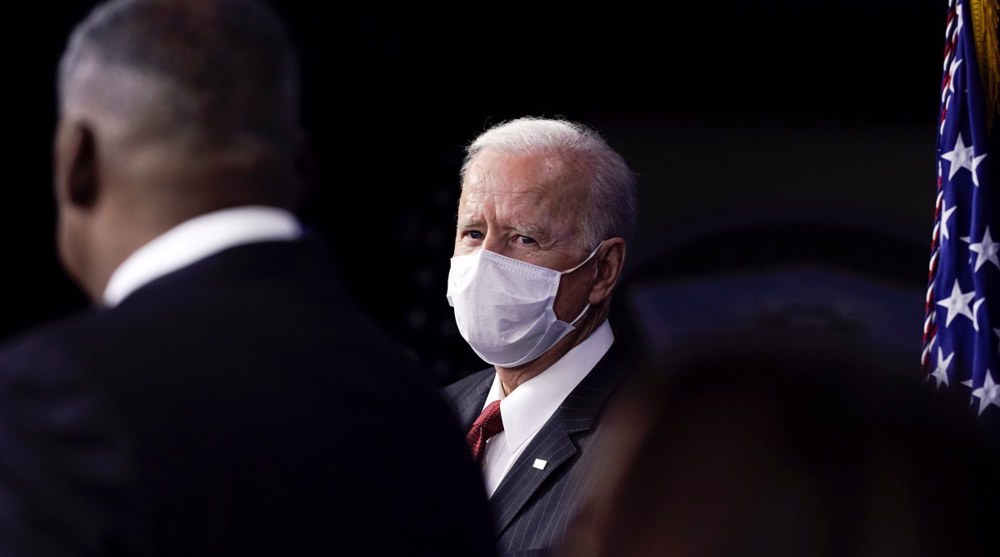
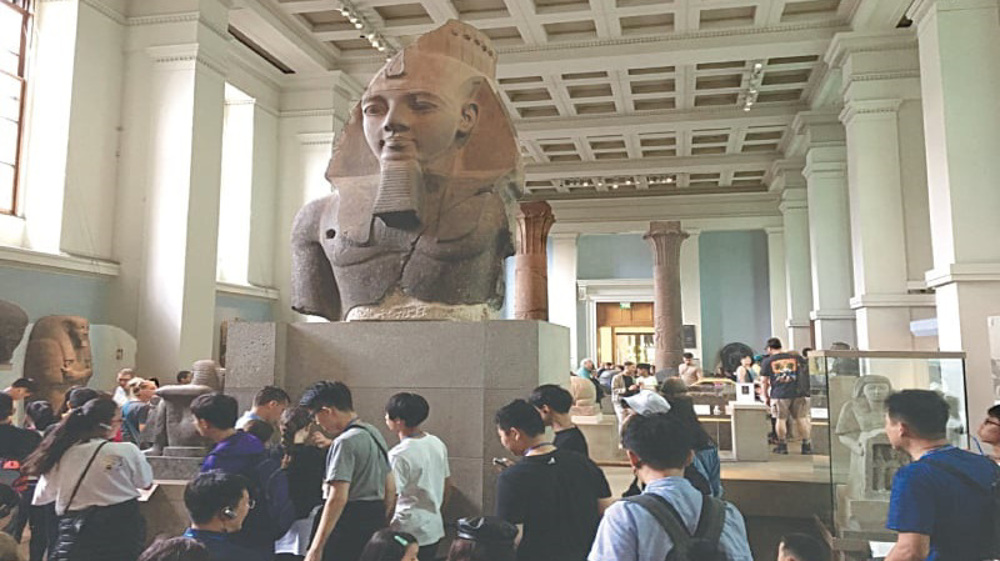
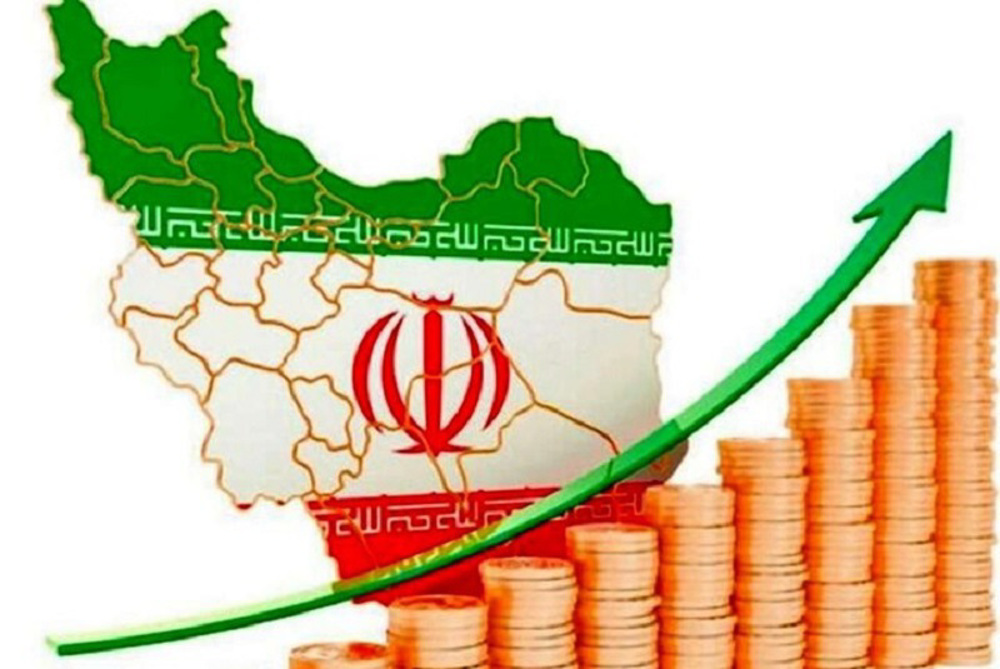




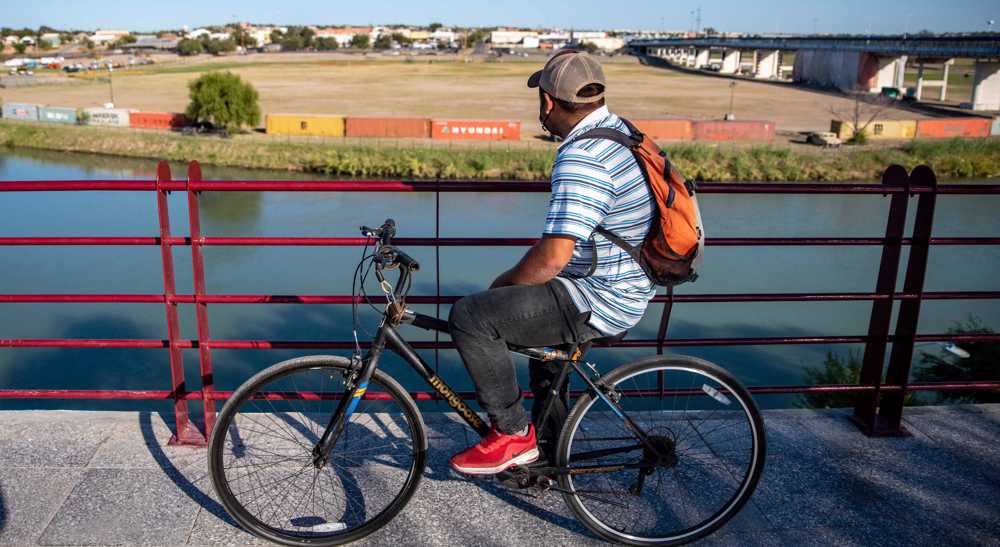
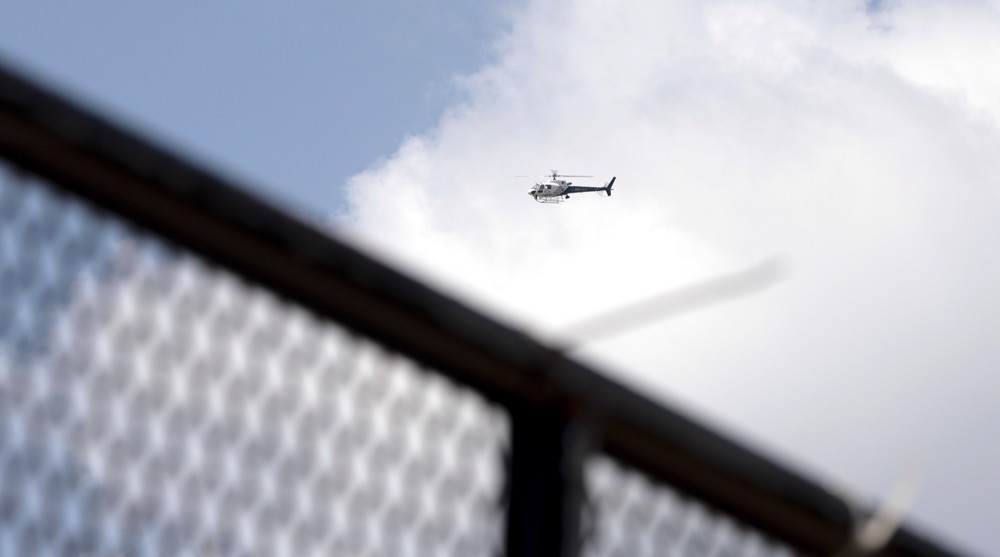
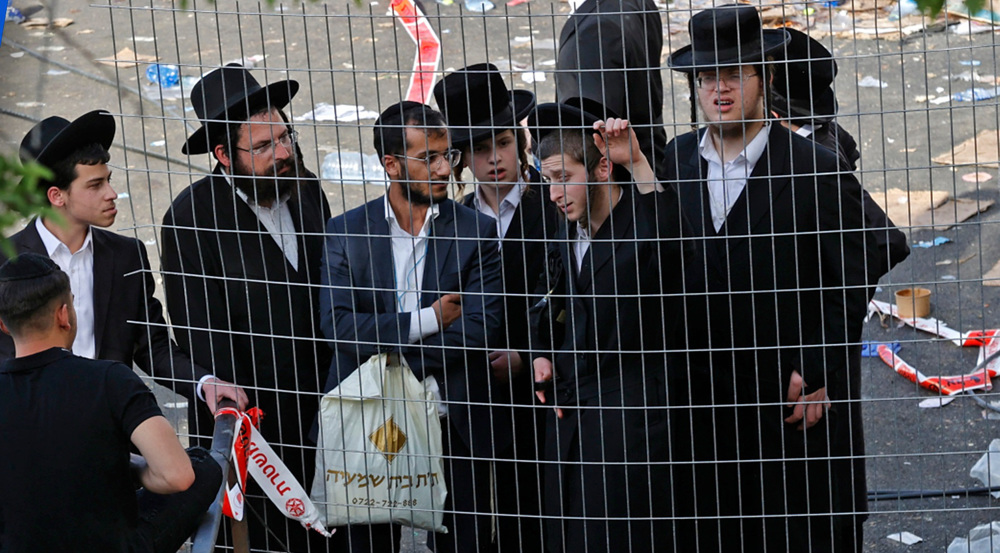
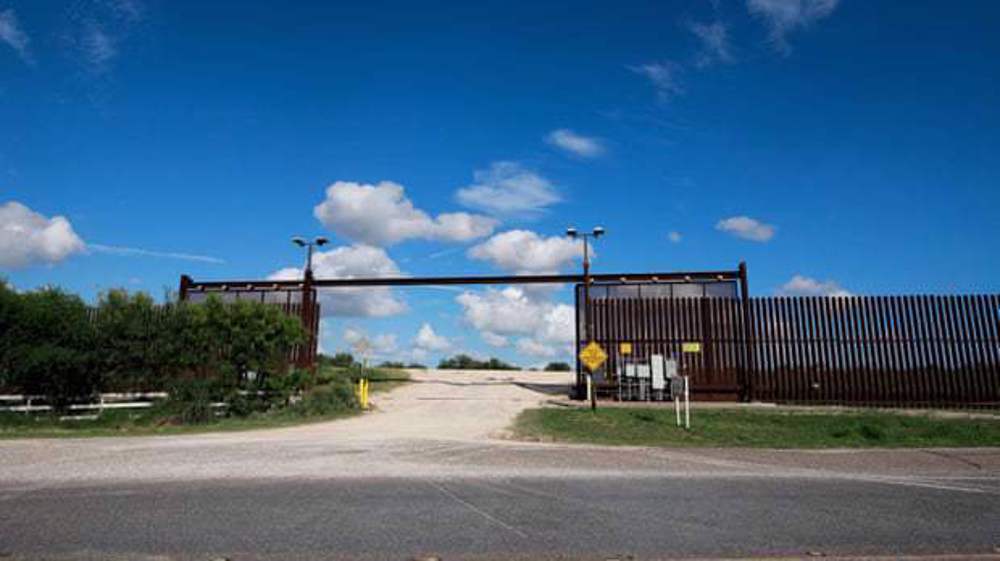
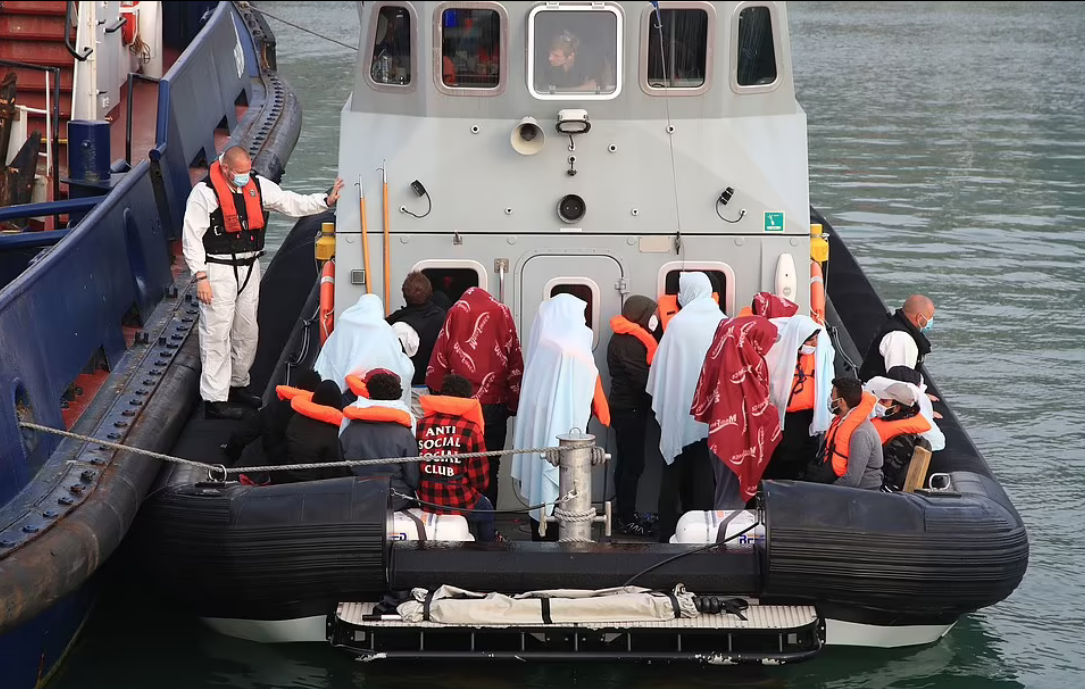
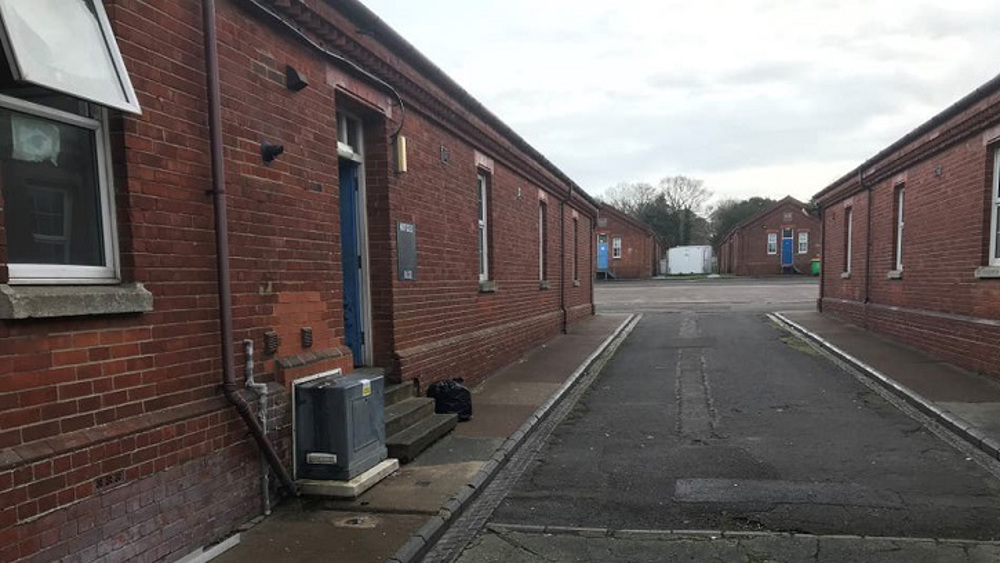
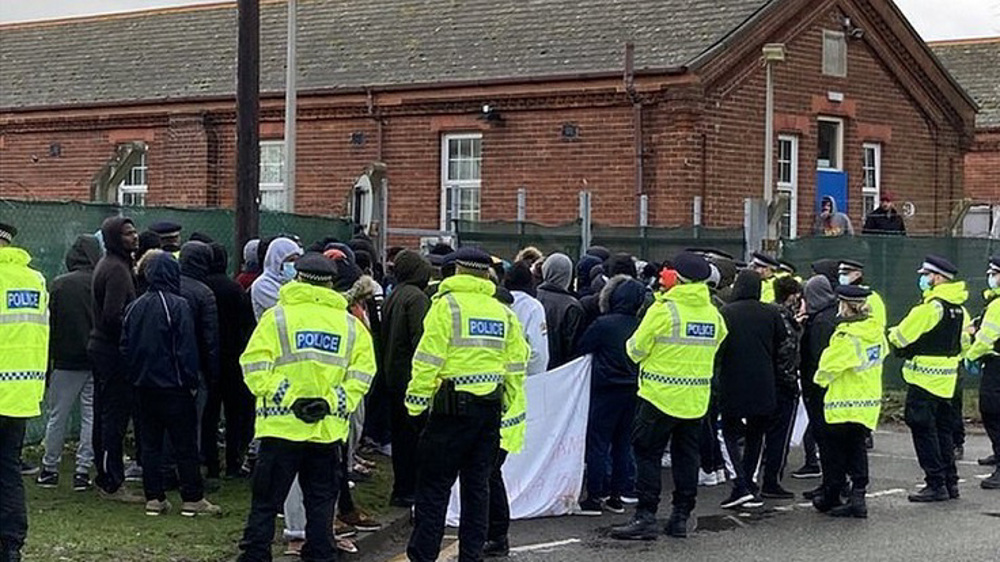
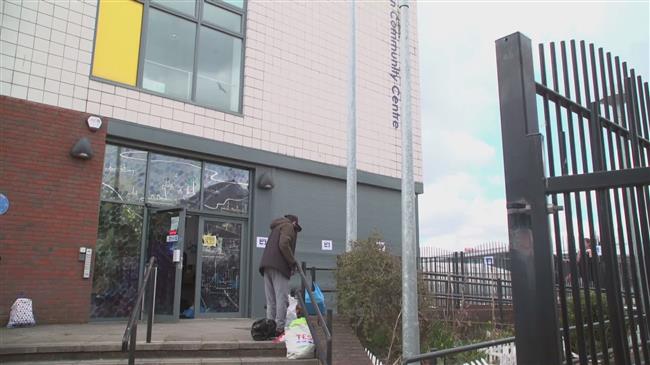
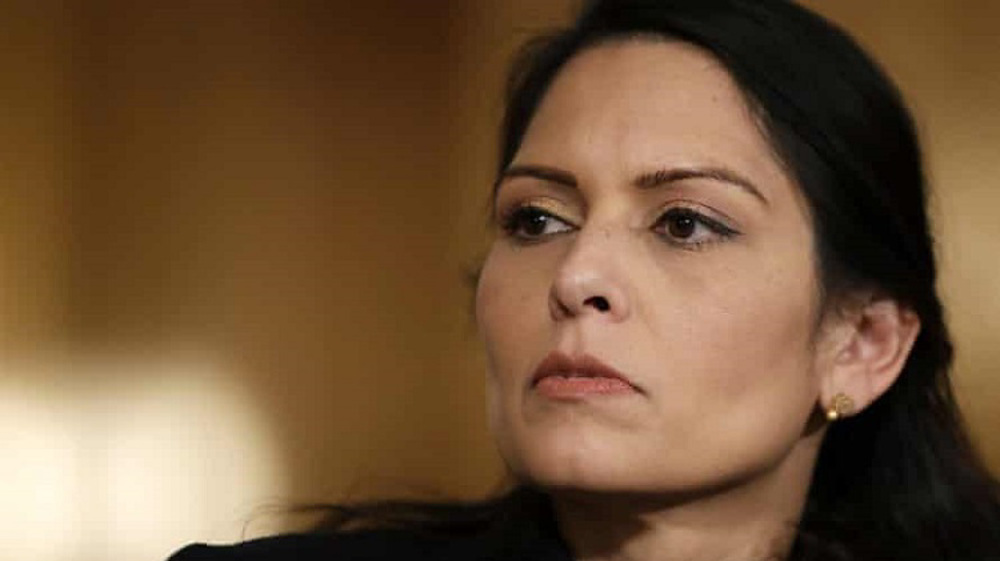

 This makes it easy to access the Press TV website
This makes it easy to access the Press TV website